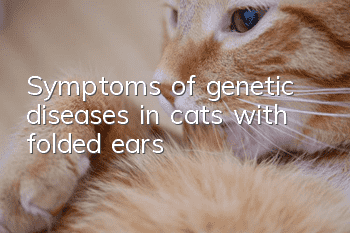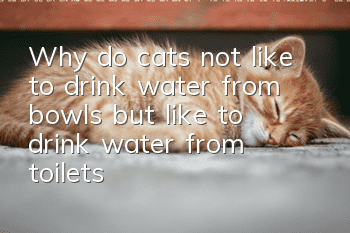Symptoms of genetic diseases in cats with folded ears

The hereditary skeletal disease of folded-eared cats is called chondrooskeletal dysplasia. The main symptoms are that the tail will be relatively thick, short and stiff. In severe cases, the tail of folded-eared cats cannot swing freely, and then the bones and joints of the hind limbs will develop. Abnormalities, deformed and bent foot bones, and swollen bones and joints in the soles of the feet. Similar symptoms may also occur in the forelimbs, but to a lesser extent than in the hind limbs. Some cats' toes may even become deformed, their claws cannot extend and contract normally, their nails may grow abnormally, and their hind feet may become abnormally thick.
Random articles
- Will mosquito repellent products kill cats? Here’s the truth~
- Why do cats vomit a bunch of yellow stuff?
- How long does it take for a cat to eat after neutering surgery?
- Can bleeding gums in cats heal on their own?
- How to clean cat’s claws
- There is a black circle around the cat's mouth
- Is a Siamese cat weighing around 9 pounds considered thin?
- What to do when a cat gives birth to kittens
- Symptoms before Siamese cats give birth to kittens
- What’s the reason for the cat’s heartbreaking meowing?



